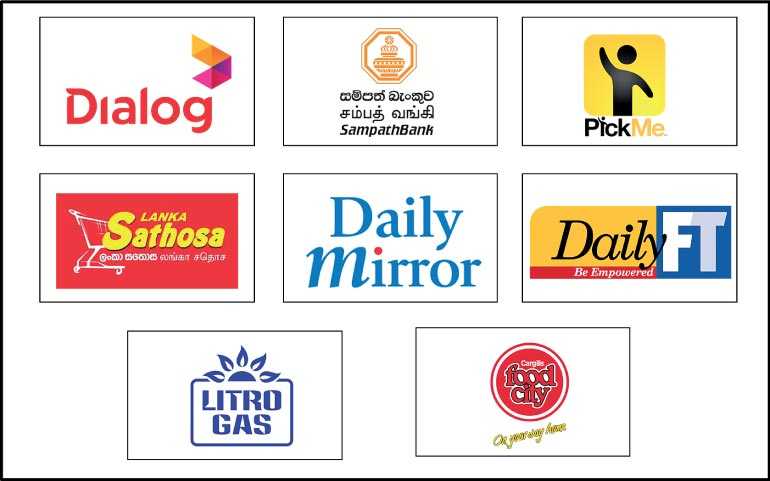Tuesday Feb 17, 2026
Tuesday Feb 17, 2026
Wednesday, 6 May 2020 00:24 - - {{hitsCtrl.values.hits}}

Brand Finance Lanka Managing Director Ruchi Gunewardene explains the need to invest in responsive strategies to build successful brands in a post-COVID-19 world
The pandemic sweeping through the world is not only a global health threat but its impact on global markets is very real with dire consequences already being felt by the ordinary citizen.
Worldwide, brands across every sector need to brace themselves for this upheaval that will follow in business activities, supply chain and revenue in a way that will eclipse any other economic disaster in recent memory. These impacts will be felt well into 2022.
There are those who believe the world will be permanently altered and we will not go back to the way we used to live, whilst others believe it will be a temporary shift in behaviour and will slip back to where it was once a vaccine has been found.
Change will happen
Whatever happens in the future, there are many trends following the COVID-19 outbreak which will accelerate. There will be a faster move to digitisation across all facets of life with online being the new normal.
People who were not able to get access finance will ensure they can get online banking, make payments and those who have experienced the convenience of goods being brought to the doorstep will continue to do so.
Work patterns will change where working from home will no longer be frowned upon. How we interact with government institutions will change too as they increasingly shift on-line. And the way we pursue our leisure activities, be it gathering news, reading, exercise or other pursuits will also shift on-line.
These are just a few of the factors which will impact the way we perceive and interact with brands. The financial impact of COVID-19 is varied with certain sectors being minimally disrupted whilst others are battling for survival.
Brands are either thriving, striving or surviving, and where they are positioned on this spectrum will depend on the sector it is operating in, and within that, how strong the brand is in terms of scale, share, growth, brand equity.
What will also change permanently is how brands will be marketed. Brands will need to adapt to the new world by engaging proactively with customers in a very different way. Reputation must be built by helping consumers through difficult times when unemployment has grown, financial insecurity is heightened and the national economy is precariously placed. In an uncertain future, empathy and helping the customer is key to moving ahead.
Being responsive
There are many examples of smart brands who have been quick enough to seize the opportunity by actively engaging in this way with their customers, when they most needed help.
During these times of curfew when movement was restricted many were dependent on their phones to reach the outside world, whether it be to talk to loved ones or obtain food supplies or to work from home. Suddenly there was a need for more airtime and data. Sri Lanka’s most valuable brand, Dialog, was quick to seize on this to introduce free calls and data package offers which were gratefully snapped up by their customers.
SriLankan airlines financial troubles were further compounded with the grounding of the entire fleet. However, this did not deter them from embarking on mercy missions to bring back Sri Lankan students stranded across the world. The first stop were students from the epicentre of the pandemic in Wuhan. Whilst the viability of the airline is uncertain, these initiatives have done much to endear the brand in the eyes of all Sri Lankans.
When the curfew was suddenly imposed with little or no warning there was panic in household about getting food supplies. The very first brand to step up was Sathosa, who took a leadership stance by quickly establishing a partnership with PickMe to deliver food items. The ability to rapidly mobilise themselves to serve customers in urban areas shed a new light on the usually lethargic Sathosa brand, changing perceptions in just a short span of time. Litro Gas was another brand that quickly responded to providing the basic essentials of gas for cooking.
With the sudden lockdown and inability to print and distribute newspapers, Daily FT and Daily Mirror brought out a free digital newspaper very early on. This is an investment to continue to sustain their readerships and keep them abreast of the latest news and analysis in these crucial times.
Another interesting collaboration is how Sampath bank teamed up with PickMe to provide cash to their customers at home. And on similar lines Cargills Food City introduced their mobile supermarket – Cargills 2 Home. This mobile vehicle which is set up like a supermarket has essential food items, such as fresh, frozen items and a variety of dairy products brought to the doorstep for enjoyable, safe and convenient shopping.
Rethinking brand engagement
These examples illustrate how smart brands have quickly adapted and invested in providing different services to customers, meeting their needs at a point when they needed them most. Such initiatives build reputation and loyalty and are much more powerful than any communication or CSR initiative. Whilst these initiatives may not always be commercially viable, agile brands are making marketing investments which keep customers at the forefront when they are most required.
As brands struggle to make headway in these difficult times, pivoting away from the usual marketing and brand plans and investing in more meaningful strategic initiatives relevant to the times will be key for survival in the new post-COVID-19 world.